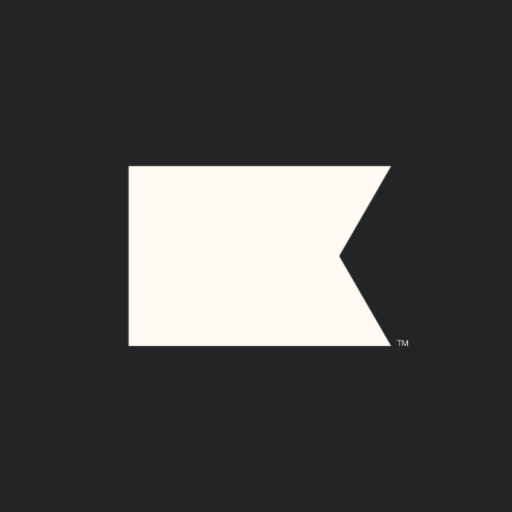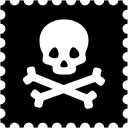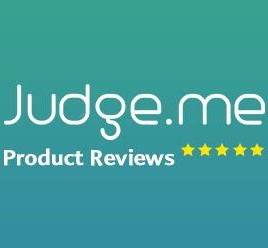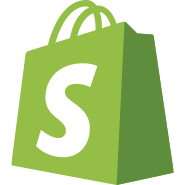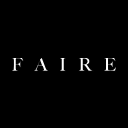
How I Started A $3.5K/Month Handmade Bag Company
Note: This business is no longer running. It was started in 2016 and ended in 2023. Reason for closure: Change business name as "Jen Fox Studios".
Hello! Who are you and what business did you start?
I'm Jen, and I own FOXLY Handmade, a handmade bag company based in Albuquerque, New Mexico. I work with artists to develop illustrations that I then turn into useful, practical pouches. Think of them as little pieces of portable, functional art!
It took me a few years to find the ONE product that I really connected with, that my customers responded to, and that I could scale. After a few years of trying it all, I landed on my signature line of zipper pouches, which I have been selling exclusively since the beginning of 2019. I love being able to collaborate with and support other artists and share their valuable work more broadly with my audience.
After several years of selling almost entirely at pop-up shops and in-person events, I pivoted to focus on eCommerce sales of my pouches on my own website in late 2019. And boy, am I glad I did - my timing was just right to get my feet under me before all of my 2020 events were canceled.
Now, I've transitioned my business almost entirely online, and my website sales have been growing month over month. I anticipate that I will triple last year's sales by the end of this year, even without the in-person events I used to rely on.

What's your backstory and how did you come up with the idea?
I have been sewing and creating as a hobby and as a business since 2009, but my line of handmade bags under the name FOXLY Handmade began in earnest in 2016.
At the time, I worked full time as an interior designer at a commercial architecture firm, but I had an itch to have full creative control over a project from start to finish. I began making leather and canvas totes, block printed pouches, and all styles of bags. I developed the patterns myself, sourced materials, cut, stitched, marketed, and I developed a loyal following by carting those bags all over town to local shows (sometimes on a bike with a trailer attached to the back!).
Until I burned out. I was exhausted by the range of inventory that I was trying to keep up and weighed down financially by all of the supplies and materials I had to keep on hand to produce it. It was a pace I wasn't able to sustain, and all of my time was spent creating, and I had no brain power left to actually SELL. So I had to make a change.

I had a notebook of handwritten records from all of the sales I had made over the previous several years. I sat down with those records at the beginning of 2019 and tallied up all of my bag styles and their sales numbers. Looking at the data, it was obvious that I had a one stand out product -- and it just so happened that it was the product that was the least complex to make, and the one I was confident I could scale when the time was right. I dropped about 15-20 bag styles from my line and focused only on making zipper pouches, which feature the illustrations of several artists.
It's easy to fall down the rabbit hole and get distracted by shiny things. I did that for years before I realized I needed to simplify! Simplifying and focusing my business has also made it easier for me to say no to opportunities that don't align.
At first, I resisted the idea of getting rid of all of the styles of bags that I had become known for. I loved putting my creative energy into getting the details of a bag design just right, and it felt like I was throwing that hard work out the window. Looking back, paring back, and focusing on just one thing was the single best decision I have made for this business. It has freed up mental space and has reduced my overhead significantly. I couldn't argue with the data, and I am so grateful that I simplified my production and my product line for the sake of my own sanity (and profitability!).
Plus, I realized that by partnering with artists to create artwork for these pouches, I had the potential to exponentially expand my brand's reach over time and to continue to develop new collections without reinventing the wheel, since my core product is the same.
As a side note, I think it's important to mention here that this business is not able to provide a full-time income yet, though I am aiming for that for the future. I am very grateful to have a part-time university job that provides me with benefits and a small but consistent paycheck. I would recommend hanging on to some consistent income for as long as you can when you are just starting out unless you have a hefty personal savings cushion!

Take us through the process of designing, prototyping, and manufacturing your first product.
I'm lucky to have a strong background in sewing, and I manufacture all of my products myself in my home studio. I'm primarily self-taught, and when I was in college I started a sewing pattern business for home crafters. Years of sewing and designing patterns for handbags made this next phase of selling physical ready-made bags a natural step for me.

My background as an interior designer also taught me valuable project management skills. I think in 3D naturally, and I envision a final product in tandem with all of the steps it will take to get there.
I always try to remember that my first idea usually is not my best! It takes time and trial and error for the truly great ideas to emerge.
Developing a new product is quite similar to an interior design project, in a way - I create a timeline for myself, allowing much more time than I think I need for all of the details of the manufacturing process. Spreadsheets are crucial for documenting quantities, sources, and figuring out costs. I pay my artists commission on every sale, and I keep track of these figures within my spreadsheets as well. I document my steps meticulously so I don't have to start from scratch every time I sit down at the sewing machine or the computer.
From the beginning, I kept track of every minute I spent sewing and handling a product. That time is accounted for in my spreadsheets so that I can pay myself for it. For someone who hand makes goods, it's easy to fall into the trap of not paying yourself appropriately for your time, and I was determined to factor in a reasonable hourly rate commensurate with the type of work I was performing.

I also document my process with the eventual goal of handing off production to someone else, but right now as I am still refining and tweaking, I really enjoy having full control over my product from start to finish. For now, the volume is manageable on my own, but I hope to need help in the future!
As for some behind the scenes logistics, when I narrowed down my product line to focus solely on the zipper pouches, I worked with a lawyer to help me draft an Artist Agreement to use with the artists I partner with to create the artwork that's on the pouches. This written agreement has been invaluable as I begin to approach more established artists and ensures we have a mutual understanding of how their artwork will be used and how they will be compensated.

Describe the process of launching the business.
FOXLY Handmade didn't start as an eCommerce business. My "launch" in 2016 was a tiny table at a poorly attended market! When I transitioned my business to be primarily online, I already had a pool of local customers who trusted me, but I did have to "train" them to shop on my website, which did not come naturally for everyone.
When I did launch my website, I chose Black Friday weekend in 2019. I teamed up with other small makers for an Instagram giveaway, which resulted in tons of traffic in a short period of time to my website and tons of sales. I sold over $1,500 that first weekend on my new site, which was more than I might have made at a local market, with far less effort in setting up and tear down. That's when I realized I needed to really dig in and figure out how to make my online presence work for me, instead of unpredictable in-person shows.

Since launch, what has worked to attract and retain customers?
I consistently get 40% of my sales from my very small email list. This is by far my most valuable asset and the one I am focused on building this year. I have been consistent in sending weekly emails to my list for the past six months, and the results have been well worth the effort. I love using Klaviyo for this since the analytics help me keep track of the success of email campaigns. When I'm uninspired, I can easily look back at well-performing past emails, tweak them, and reuse them.
Since I am focusing on a single product, I have to keep my audience engaged. I treat every new pouch with fanfare - I talk it up, I give sneak peeks, I interview my artists live, I give people opportunities to engage on social media, and I try my best to create a buzz and excitement to keep people tuning in for the latest thing.

Between my small social media audience and my small email list, about 30% of my customers have made more than one order in my store. I know that someone who bought from me once has a high likelihood of buying again, so I try my best to give them reasons to go back to my website as many times as I can, and email plays a key role.

It makes my heart happy to see such a high conversion rate from my returning web visitors!
To attract new customers to my site, I run periodic giveaways on social media for people to enter and win a pouch, especially right before I introduce a new collection. Some new subscribers are just in it for a freebie, but a worthwhile percentage of them stick around and eventually purchase. It's been a good way to get a lot of eyeballs on my site and on my email list for very little ad spend.
If it's possible to test the market first BEFORE committing to a big investment of time or money, it's always worth it. Get creative, ask your audience, do a pre-sale or pre-launch, and don't be afraid to be wrong.
As far as paid ads go, this is an area for me to grow. I usually run a basic ad set up for a cold audience with an image of a best selling pouch at a dollar or two a day, and simple retargeting ad to my warm audience.
How are you doing today and what does the future look like?
My business has changed tremendously in the last 18 months, and even more so in the last 6 months. Honestly, I'm still in the beginning stage and getting my feet under me. So far I've bootstrapped everything in my business, but I've still been making it a priority to pay myself a minimum of 25% of gross revenue from the very beginning. I've built this number into my pricing and being able to pay myself monthly, even a small sum, is very motivating.
My focus this year is building my email list, reigning in extraneous spending, and documenting my systems and strategies to eventually outsource some tasks when the time comes.
This business is not big, most of my growth has been organic, and it hasn't been quick by most measures. I have fewer than 1,000 engaged email subscribers on my list, but they are very active and loyal customers. I also have fewer than 2,000 followers on Instagram, but again - they really show up. My imagination takes off when I think about what it would mean for my bottom line to simply double the number of these highly engaged people visiting my website.
FOXLY Handmade is an itsy-bitsy business - and I personally hand make each and every product that goes out into the world. It's easy for me to compare my business and my metrics with others, but at the end of the day, building gradually and ensuring I have a strong foundation, as well as a healthy work/life balance is really important to me.
That's my unglamorous goal - to build a business that supports other artists, provides me with a living wage, and is something I can feel good about while also enjoying life apart from work.
Through starting the business, have you learned anything particularly helpful or advantageous?
It's easy to fall down the rabbit hole and get distracted by shiny things. I did that for years before I realized I needed to simplify! The Pumpkin Plan by Mike Michalowicz pushed me in the direction of focusing my product line, and my business has been all the better for it.
Simplifying and focusing my business has also made it easier for me to say no to opportunities that don't align. I don't need to use precious energy to weigh every opportunity that comes to my direction - it simply either aligns with my focus, or it doesn't.
One thing that was out of my control but that unexpectedly helped my business was the shutdown that happened this spring. Since I already had the framework in place, I was able to redirect people who would normally shop in person to shop on my website. My customers were forced to shop online, and now they are used to it! It also jolted me into paying more attention to my website instead of living events, which was a reallocation of brainpower that really helped me.
What platform/tools do you use for your business?
I use Shopify for my website and the Turbo theme from Out of the Sandbox. I've found the interface easy to use, with easily available resources if I get stuck. I use Klaviyo for my email service provider, and I'm really starting to dig into segmenting my list to take advantage of all of the tools they offer. I like Judge.Me for collecting reviews of my products from happy customers.
I use Google Drive a ton. Working documents are at my fingertips, and it's easy to access from anywhere and collaborate with anyone.
My motto lately has been to keep it super simple. This applies to products, and to technology. As a creative person, I tend to get distracted and I've made very deliberate decisions this year to focus only on things that will really move the needle in my business and impact the bottom line. Everything else can wait.
What have been the most influential books, podcasts, or other resources?
The Pumpkin Plan and Profit First by MikeMichalowicz helped me find clarity in my finances and in my focus.
I am a member of the Social Sales Girls Inner Circle with Susan Bradley, and it is the most encouraging, practical, and helpful business group I have ever been a part of. All of the group members sell a physical product, and I have learned so much about where to put my energy to get the most impact.
Advice for other entrepreneurs who want to get started or are just starting out?
It's important to truly understand the costs and time involved in creating or sourcing your products. If you are just guessing, you're usually underestimating, in my experience.
If it's possible to test the market first BEFORE committing to a big investment of time or money, it's always worth it. Get creative, ask your audience, do a pre-sale or pre-launch, and don't be afraid to be wrong. It's not always about you - it's about what your audience wants.
Commit to ONE thing to focus on. One product type, one sales channel, one social media platform...especially if you have limited time and energy.
Be open to the expertise of others, but not at the expense of your own voice and gut instincts.
Are you looking to hire for certain positions right now?
I'm not looking to hire, but I am always on the lookout for artists for future collaborations that fit my brand. If that's you, feel free to get in touch: [email protected]
Where can we go to learn more?
If you have any questions or comments, drop a comment below!

Download the report and join our email newsletter packed with business ideas and money-making opportunities, backed by real-life case studies.

Download the report and join our email newsletter packed with business ideas and money-making opportunities, backed by real-life case studies.

Download the report and join our email newsletter packed with business ideas and money-making opportunities, backed by real-life case studies.

Download the report and join our email newsletter packed with business ideas and money-making opportunities, backed by real-life case studies.

Download the report and join our email newsletter packed with business ideas and money-making opportunities, backed by real-life case studies.

Download the report and join our email newsletter packed with business ideas and money-making opportunities, backed by real-life case studies.

Download the report and join our email newsletter packed with business ideas and money-making opportunities, backed by real-life case studies.

Download the report and join our email newsletter packed with business ideas and money-making opportunities, backed by real-life case studies.

